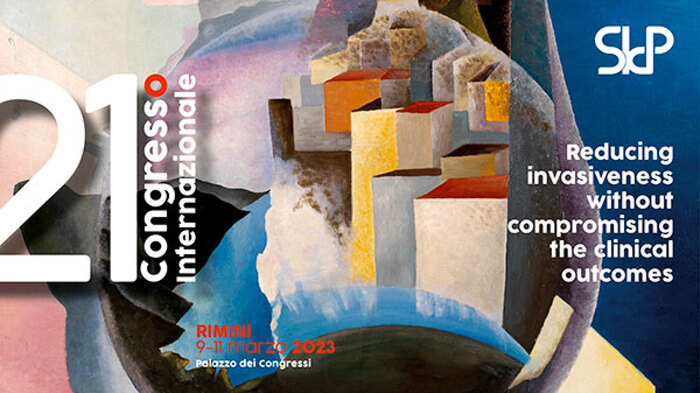Almost 5 million Italians suffer from osteoporosis, in 2 out of 3 cases they are women, and every year they suffer about 600,000 bone fractures.
But we must not give up saving bones with anti-fracture drugs to prevent the onset of a serious but rare complication, i.e. osteonecrosis of the jaw bones, or a degeneration of the jaw bone which involves its leakage often with pain and swelling .
However, it is necessary to constantly keep the doses, methods and period of administration of these therapies under control and, above all, gingival inflammation must be treated constantly to reduce the risk of extractions and surgical interventions.
This is indicated by the first Guidelines drawn up by the Italian Society of Periodontology and Implantology (Sidp) and by the Italian Society of Orthopedics and Traumatology (Siot) which will be presented at the 21st SIdP congress, scheduled from 9 to 11 March at the Palacongressi of Rimini.
To counteract bone fragility, various drugs are now available that act by reducing the resorption of bone tissue.
The most widespread family is that of the bisphosphonates to which are added the monoclonals such as denosumab as well as those that associate the anti-resorptive activity with the ability to stimulate the deposition of new bone.
"The introduction of these therapies has constituted an important step forward in the prevention of fractures - explains Luca Landi, coordinator of the Guidelines for SIdP -, but a certain concern arose in patients when among the possible complications of taking anti-resorptive Osteonecrosis of the jaws has appeared.Although its incidence is very low, we are increasingly witnessing the fears of patients who are taking these drugs or who should start taking them.
Suspending or not starting therapy with these drugs for fear of incurring this complication not only exposes the patient to a higher risk of fracture but often causes difficulties for the dentist who has to manage dental extractions or surgery in the patient with periodontal problems.
For this reason, the Position Paper underlines the importance of anti-fracture therapy which must not be interrupted or postponed by the dentist unless this is done in agreement with the prescriber".
"Osteoporosis - underlines Maria Luisa Brandi, coordinator of the Guidelines for SIOT and head of the Fragility Fracture Observatory - is a systemic skeletal disease characterized by a reduction in bone mass and quality which leads to bone fragility and a greater risk of hip, spine, humerus, forearm fractures.Adequate
anti-resorptive therapy is able to reduce fractures by 50%, with a positive impact, not only on patients' health and quality of life, but also on healthcare costs However
, as many as 80% of patients with osteoporosis do not receive adequate treatment and 1 in 2 patients abandon therapy".
The joint SIdP and SIOT document focuses, for the first time, on the possible implications of anti-resorptive therapy in osteoporotic patients at high risk of fracture and in those suffering from periodontitis and gingivitis.
In particular, for those taking bone medications, the main risk of jaw osteonecrosis occurs in the case of tooth extractions.
"It is necessary - specifies Landi - to pay close attention in tackling surgical procedures in these patients: the initial clinical evaluation alone is not sufficient, but it is necessary to start periodontal treatment and re-evaluate the health conditions after some time.
However, the chance of developing jaw necrosis in patients with successfully treated periodontitis is much lower than the risk of fragility fractures in high-risk people.
On the other hand, periodontal therapy is effective in reducing the risk of tooth extraction and implant placement.
The latter are not contraindicated in patients with osteoporosis but must be used only after having controlled the periodontal inflammation to prevent infections and inflammation of the implants themselves, a condition which instead exposes them to a greater risk of developing osteonecrosis of the jaws in case of therapy with anti -resorptive". While, if surgical procedures or extractions are necessary, the pros and cons must be weighed between the dentist and the prescribers.
The new Position Paper, underlines Sidp President Nicola Marco Sforza, "is further evidence of how our scientific society is committed to disseminating, both among clinicians and among the population, knowledge on the implications that periodontitis has with respect to oral and general. Inflammation is the mechanism that unites this to many systemic diseases such as diabetes, hypertension, cardiovascular diseases, rheumatoid arthritis up to preterm births. In all these pathologies, put the determined inflammation under control from periodontitis also means improving the effectiveness of therapies".















